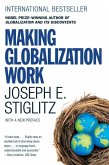In the early 1990s the Nordic countries were considered to be in a serious situation. The costs of welfare states, generous unemployment benefits, high taxation rates, strong unions, and centralized wage bargaining were thought to be undermining their competitiveness in an age of rapid globalization. By 2005 however, they all ranked at the top of a number of performance indexes on economic competitiveness and sustainability. Citizens in the Nordic countries continue to participate in and
benefit from globalization on a much wider scale than in any other similarly highly developed country, and these countries increasingly provide templates within the EU for imitation and social innovation.
This book investigates how and why welfare services, active labour market institutions, and public policies were re-combined into enabling and risk-sharing mechanisms to stimulate innovation, and how this made it possible for firms to change their work organization and pursue highly rewarding and distinctive globalization strategies. Through detailed analysis of Finland, Denmark, Norway, and Sweden, this book reveals the dynamics and transformations of their national business systems, and the
emerging new patterns of interaction between firms, labour markets, and institutions. It will be valuable addition to the literature on social innovation and institutional entrepreneurship.
Hinweis: Dieser Artikel kann nur an eine deutsche Lieferadresse ausgeliefert werden.
benefit from globalization on a much wider scale than in any other similarly highly developed country, and these countries increasingly provide templates within the EU for imitation and social innovation.
This book investigates how and why welfare services, active labour market institutions, and public policies were re-combined into enabling and risk-sharing mechanisms to stimulate innovation, and how this made it possible for firms to change their work organization and pursue highly rewarding and distinctive globalization strategies. Through detailed analysis of Finland, Denmark, Norway, and Sweden, this book reveals the dynamics and transformations of their national business systems, and the
emerging new patterns of interaction between firms, labour markets, and institutions. It will be valuable addition to the literature on social innovation and institutional entrepreneurship.
Hinweis: Dieser Artikel kann nur an eine deutsche Lieferadresse ausgeliefert werden.








